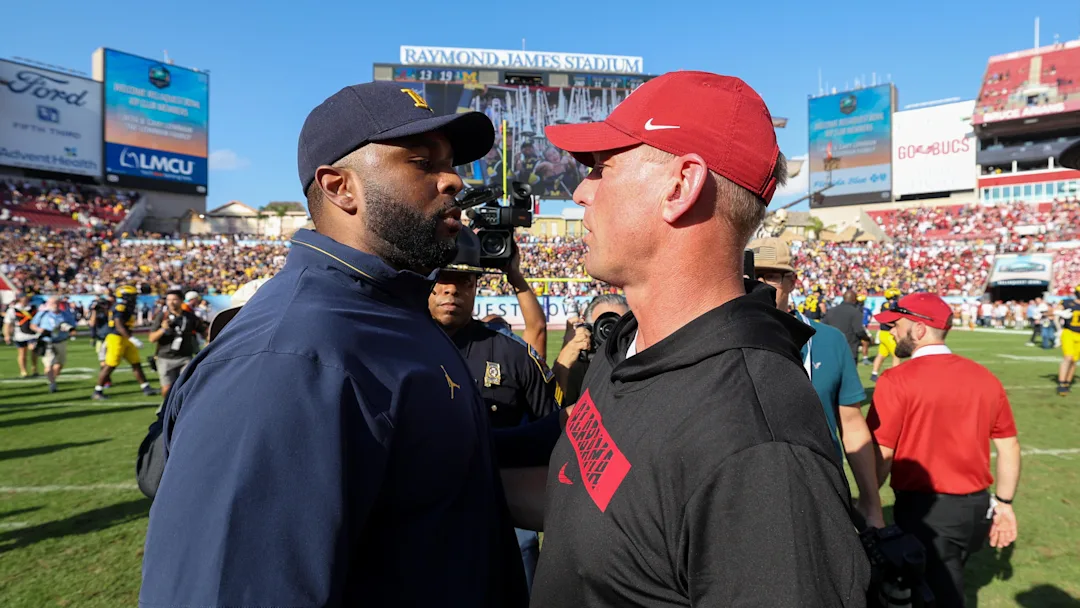The ‘Fair’ No. 17 Rating Does Not Sit Well with Alabama Football Supporters
For decades, the University of Alabama’s football program has been synonymous with excellence, winning numerous national championships, producing NFL-caliber players, and establishing itself as a powerhouse in college football. Under the leadership of legendary coaches such as Paul “Bear” Bryant and Nick Saban, Alabama has enjoyed a level of success that very few programs have matched. However, the news that Alabama has been ranked No. 17 in the latest national rankings has left many supporters feeling disillusioned and frustrated. This ranking, which many Alabama fans consider to be far too low, has sparked a considerable debate about the expectations of the team, the current state of the program, and the perception of Alabama football in the national media.
A Tradition of Excellence
To understand why the No. 17 ranking is so controversial, it’s essential to reflect on the long and storied history of Alabama football. The Crimson Tide has a tradition of winning dating back to the early 20th century, but the program truly began to gain national prominence under the leadership of Bear Bryant in the 1960s and 1970s. During Bryant’s tenure, Alabama became known for its tough, physical style of play, and the program racked up six national championships. The success continued after Bryant’s retirement in 1982, with various head coaches attempting to keep the Tide competitive, but it was the hiring of Nick Saban in 2007 that revitalized the program to its current level of dominance.
Since Saban’s arrival, Alabama has become a national powerhouse once again, winning multiple national titles and consistently competing for the top spots in college football. Saban’s leadership has transformed Alabama into a recruiting juggernaut, attracting top-tier talent year after year. Under his guidance, the Crimson Tide has been to the College Football Playoff (CFP) multiple times, and they have frequently been in the mix for national championships. This kind of success is what Alabama fans have come to expect—and demand—year in and year out.
The Shock of the No. 17 Ranking
Given Alabama’s dominance over the past decade, the idea of the team being ranked No. 17 in any poll seems almost absurd. Alabama has long been a fixture in the top 5, if not the top 3, of most national rankings, and anything outside of that feels like a significant deviation from the norm. The No. 17 ranking is seen by many as a slap in the face, an indication that the Crimson Tide’s dominance is slipping, or perhaps that the team is no longer viewed with the same reverence that it once was.
This ranking comes at a time when Alabama has faced some challenges. The 2023 season, while not a complete failure, has been a departure from the team’s usual level of excellence. The Crimson Tide suffered some unexpected losses, including a disappointing defeat to Texas, and while they managed to regroup and finish the season strong, they were never able to regain the level of dominance they’ve enjoyed in previous years. Still, many would argue that a No. 17 ranking is an overreaction, especially considering the history and resources of Alabama football.
The Discontent Among Alabama Supporters
For Alabama supporters, the No. 17 ranking represents more than just a simple number on a list. It is a symbol of what they perceive as a lack of respect for their program and its traditions. Fans have long been used to Alabama being ranked in the top tier of college football, and to see the team placed so far down the list feels like an affront to the legacy of the program.
One of the main reasons for the discontent is the perception that Alabama is being judged too harshly for a few losses, while other programs with similar or worse records are ranked higher. Fans point to teams like Ohio State, Michigan, and Texas, who have also had their share of ups and downs throughout the season, but still manage to maintain a higher ranking. The argument is that Alabama’s program should be evaluated based on its history, the strength of its recruiting, and the consistency of its performance over time, rather than just one or two bad games in a single season.
Moreover, many Alabama supporters feel that the No. 17 ranking is a sign that the media and national analysts are beginning to undervalue the program. In recent years, there has been a growing narrative that Alabama’s dominance is starting to fade, with some even suggesting that the team is no longer the gold standard of college football. This narrative has been fueled by the rise of other programs, such as Georgia, which has won two consecutive national championships, and the continued success of programs like Ohio State, Clemson, and Oklahoma.
While it’s true that Alabama has faced some challenges in recent years, it’s important to remember that the program is still one of the most talented in the country. The Crimson Tide has one of the best recruiting classes year after year, and Saban remains one of the best coaches in college football. The idea that Alabama should be ranked No. 17—behind teams like Oregon, Penn State, and Ole Miss—is a difficult pill to swallow for many supporters who feel that their team deserves more respect.
A Shift in the College Football Landscape
The No. 17 ranking also speaks to the shifting landscape of college football. As the College Football Playoff has become the ultimate measure of success, the traditional AP Poll and Coaches Poll rankings no longer hold the same weight they once did. In recent years, the playoff system has caused more and more teams to vie for a spot in the final four, and as a result, the number of elite programs has increased.
The rise of programs like Georgia, Clemson, Ohio State, and others has led to a more competitive environment, where the margins for error are smaller, and the expectations are higher. Alabama, once the undisputed king of college football, now finds itself competing in a much more crowded field. This is not to say that Alabama is in danger of falling out of contention for a national championship—far from it. But the No. 17 ranking does signal that the competition has caught up, and that Alabama’s path to a title is no longer as straightforward as it once was.
This shift is also reflected in the changing nature of recruiting. While Alabama remains a recruiting powerhouse, other programs have started to close the gap in terms of talent acquisition. Schools like Georgia, Ohio State, and LSU have managed to stockpile elite players, making the race for championships even more intense. Additionally, the rise of the transfer portal has introduced a new layer of uncertainty, as players move between schools more frequently, creating a dynamic that is difficult to predict.
As a result, the perception of Alabama’s dominance has begun to change. The program is no longer guaranteed to win every game or secure a playoff spot simply because of its reputation and history. The competition is fiercer than ever, and the days of Alabama being the unquestioned king of college football may be behind them.
The Future of Alabama Football
While the No. 17 ranking may sting, it’s important to remember that Alabama’s program is far from being in crisis. The team still has one of the best coaches in the game, and the talent on the roster remains among the best in the country. Saban has proven time and again that he is capable of retooling and rebuilding his team when necessary, and it’s likely that Alabama will bounce back in a big way in the coming seasons.
One of the key factors that will determine the future of Alabama football is the development of its quarterback position. Alabama has long been known for its stellar defenses and dominant running backs, but in recent years, the team has struggled to find consistent play at the quarterback position. While players like Bryce Young have shone in recent years, Alabama’s lack of stability at quarterback has been a concern. If Saban can find a reliable signal-caller and continue to recruit at the elite level, there’s no reason why Alabama can’t return to its place among the nation’s top teams.
Another important factor is the team’s ability to adapt to the changing dynamics of college football. As the game evolves with new rules, technologies, and strategies, it’s essential for Alabama to continue to innovate and stay ahead of the curve. Saban has proven to be a master of adaptation, and it’s likely that he will find ways to keep Alabama competitive in a rapidly changing landscape.
Conclusion
The No. 17 ranking for Alabama may be difficult for many fans to accept, but it should not be seen as a death knell for the program. Alabama football has a proud tradition of bouncing back from adversity, and it’s likely that the Crimson Tide will once again find its way to the top of college football. However, this ranking does serve as a reminder that the landscape of college football is changing, and that Alabama, like every other program, will have to continue to evolve in order to maintain its place among the elite.
For now, Alabama fans may have to endure the sting of the No. 17 ranking, but their loyalty to the program and its storied history will continue to drive them forward. The future of Alabama football remains bright, and with the right adjustments, the Crimson Tide could once again be the team to beat in college football. Until then, the No. 17 ranking will serve as a reminder that, in the world of college football, nothing is ever guaranteed.

